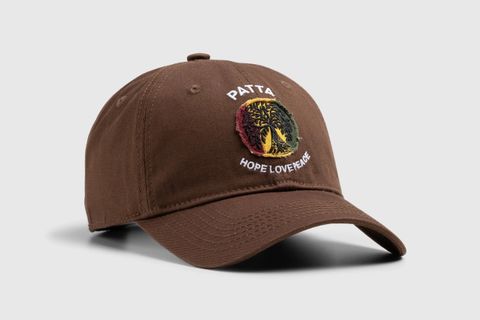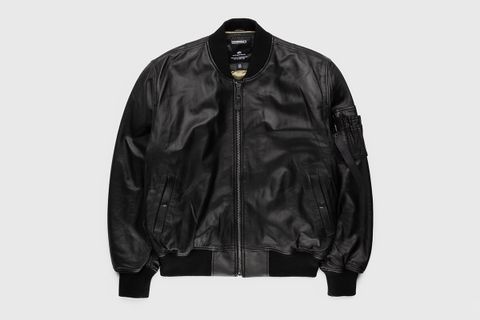WTF Is "Poverty-core" Brand Magnolia Pearl?
Late in March 2023, an unassuming clothing brand called Magnolia Pearl became a lightning rod for outrage. Unlike the recent scandals of, say, Balenciaga and Schiaparelli, though, Magnolia Pearl isn't getting grilled over a one-off marketing moment.
Instead, it's Magnolia Pearl's regular ol' clothing that set everyone off.
Things began when a TikTok user uploaded a sponsored video of herself and her mother wearing Magnolia Pearl's ragged garments, which range from faded, lacey pullovers to pre-scuffed work boots.
The real gut punch came when viewers realized that Magnolia Pearl's clothing is normally priced anywhere from $300-$700.
That's a tall order for a brand that's apparently sold at high-street retailer Free People.
Magnolia Pearl disses came fast and furious: the brand was deemed "povertycore" and its clothes were described as looking like the found garments worn by impoverished people.
It's more than a little classist to negatively describe something as "looking homeless" but, admittedly, Magnolia Pearl takes the boho aesthetic to the extreme.
Reportedly founded in 2002, Magnolia Pearl has quietly built up enough of a following to find its way into the arms of stylists for famous folks like Taylor Swift.
The clothing brand is also apparently big enough to open a second flagship store.
On the surface, I'm reminded of LoveShackFancy, the upstart indie label that serves its own stylistic niche — what Magnolia Pearl is to boho, LoveShackFancy is to cottagecore.
Both Magnolia Pearl and LoveShackFancy target specific consumers with directional, pricey clothes made desirable through evocative storytelling.
You're buying this raw-hemmed Magnolia Pearl blouse or tiered LoveShackFancy skirt not so much because you plan on wearing it forever but because you want to live in the all-encompassing world envisioned by its creative team.
Indeed, LoveShackFancy's flower-drenched storefronts are about as involved as Magnolia Pearl's rustic farmhouses.
So, yeah, typical case of the wider clothing-buying culture clashing against an extremely particular lifestyle label.
Not terribly shocking, given the frequency with which, say, Rick Owens triggers Redditors but an interesting turn given the market that Magnolia Pearl seems to serve.
There's a wrinkle to the Magnolia Pearl story that makes this especially interesting to me, personally, one that I think critics haven't hit upon.
Magnolia Pearl is essentially aping the nebulously-defined fashion subculture of "artisanal clothing." The term "artisanal" is a loose generalizer that somehow encompasses designers as disparate as Carol Christian Poell, Cherevichkiotvichki, and Geoffrey B Small but in this case, I'm referring particularly to designers that affect an aesthetic that some in the space describe as "peasant"-y.
We're talking labels like Archivio J.M. Ribot, Mutedance, and Elena Dawson.
Especially Elena Dawson, actually, as the Paul Harnden Shoemakers veteran's entire aesthetic at least partially appears to have set Magnolia Pearl's current design ethos in motion, though you can see bits borrowed from other brands inspired by Victorian womenswear and 19th-centure European workwear.
The big difference is that all of the aforementioned labels are extremely low-key and pretty social media-averse, letting their handmade clothes speak for themselves.
Dawson's prices, for instance, are far higher than the MSRP on Magnolia Pearl's clothing — Elena Dawson shirts are at least twice the price of Magnolia Pearl's $400 blouses, for instance — but Dawson's clothing is handmade in the UK of primo fabrics in quantities so limited that some pieces are exclusive to one or two in the world.
Stores are prohibited from selling Dawson's clothing online and she limits stockists to only the retailers that "get it," like Trading Museum COMME des GARÇONS and IF Soho.
Like it or not, Dawson's clothing is exclusionary by design and she doesn't care whether anyone else gets it.
Magnolia Pearl, meanwhile, doesn't mention anything about its finishing beyond that some pieces are "hand-distressed" and it's clearly going for a mass-market appeal, presumably the same folks who own a pair or two of Golden Goose's $700 distressed sneakers.
If anything, that angle makes Magnolia Pearl even less unappealing, in that it's not only selling an aesthetic unpalatable to the general public but (intentionally or not) co-opting a style of clothing that's better served by thoughtful small batches rather than dated boho chic marketing.


